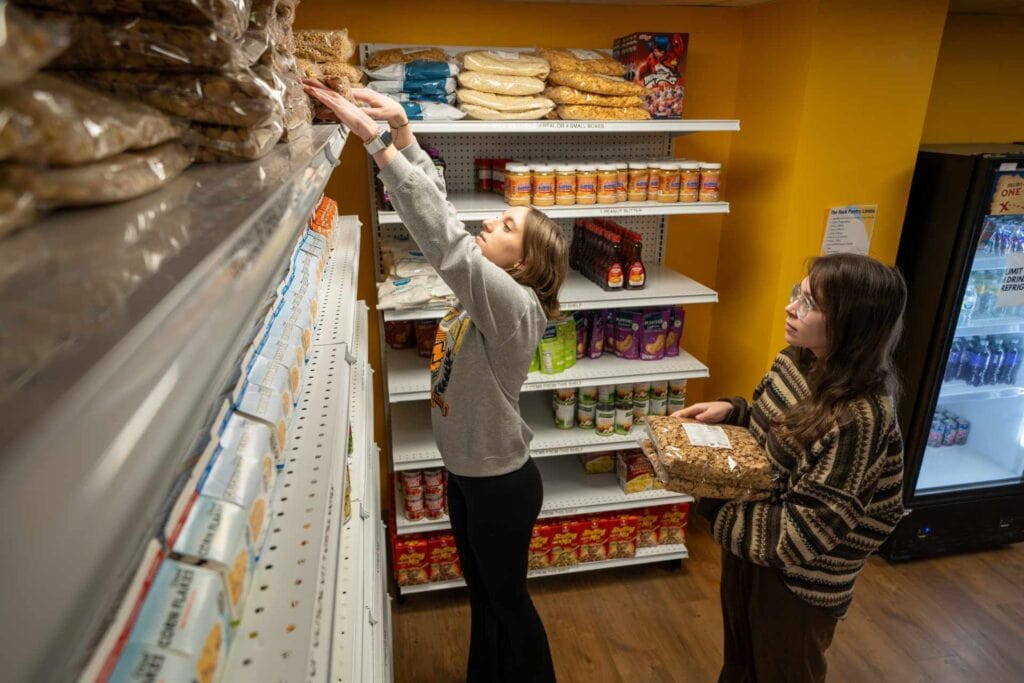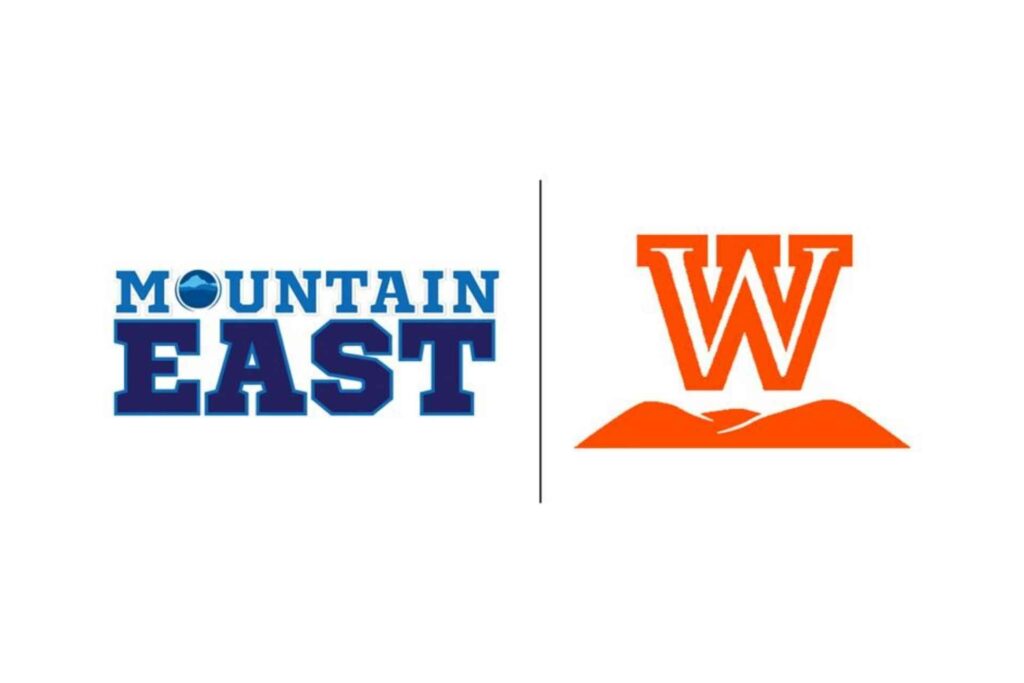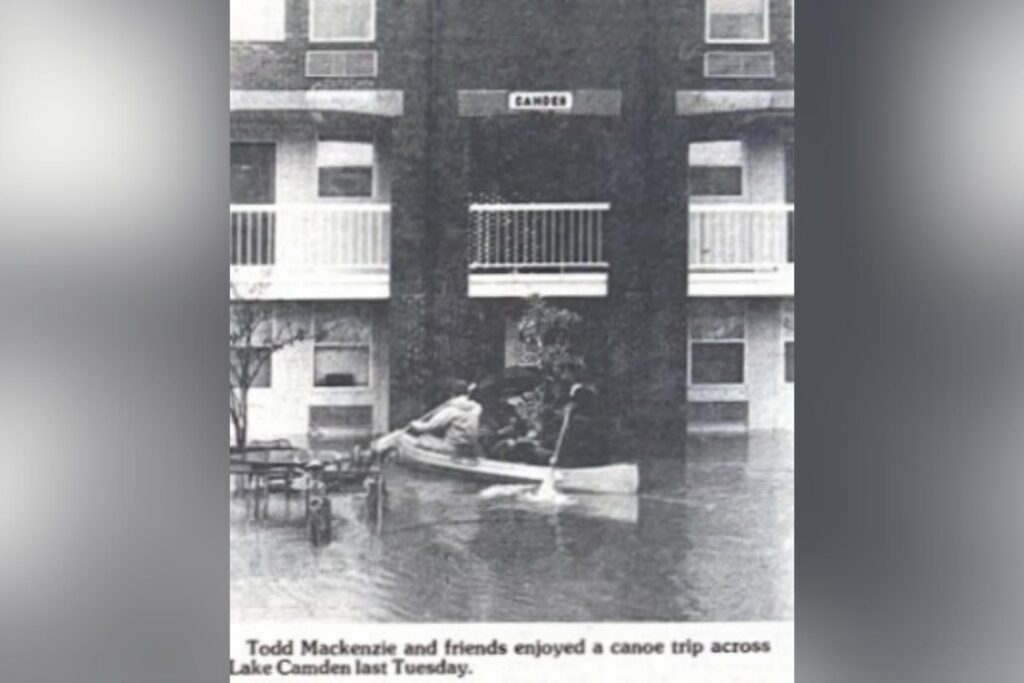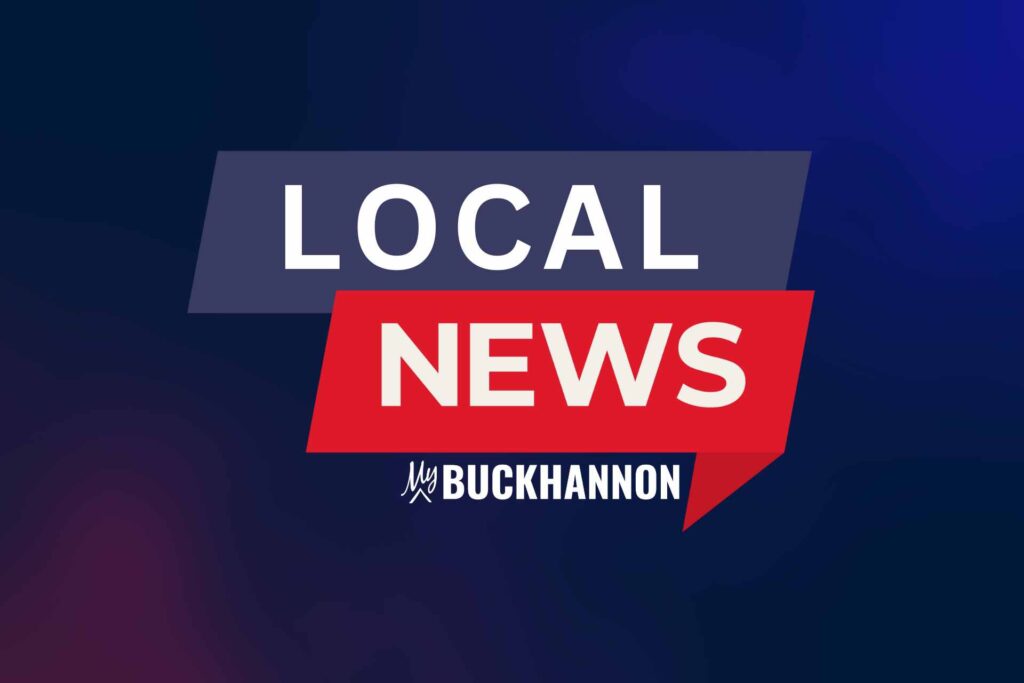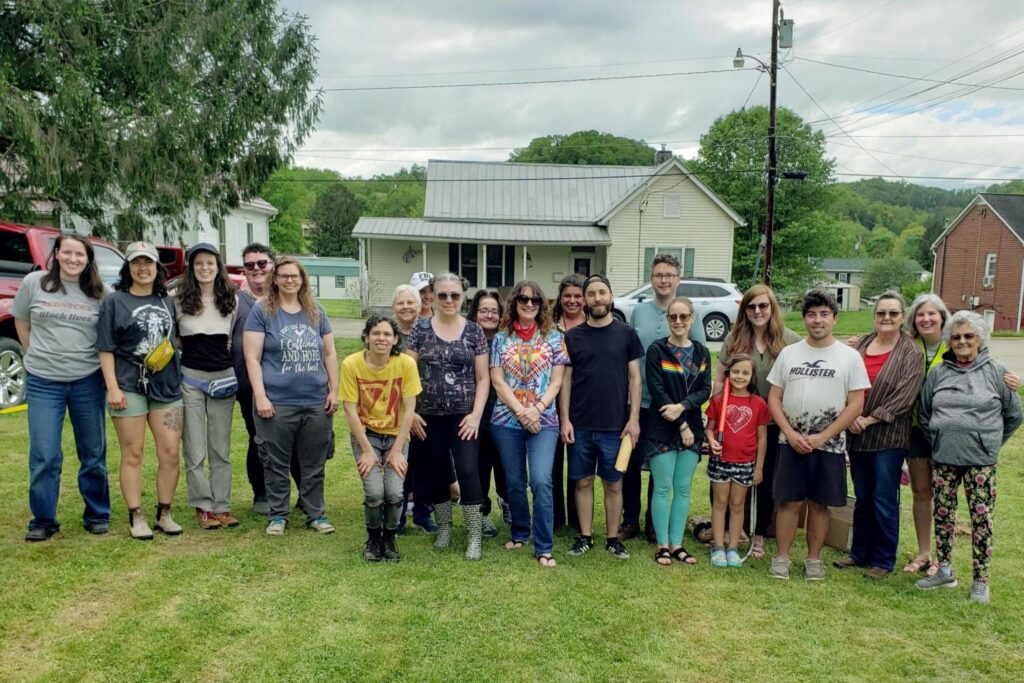With an understanding about the importance of providing support to the whole student, West Virginia University is addressing food insecurity among students throughout the WVU System.
“Nobody can focus on studying if they haven’t had breakfast or lunch. It is absolutely foundational,” said Erin Possehl, a junior English major from Waldorf, Maryland, and one of dozens of student volunteers at The Rack: WVU Student Food Pantry.
The Rack provides non-perishable and perishable food items plus hygiene products to University students at no charge out of its main Morgan House location on the Downtown Campus along with two Snack Rack locations on the Evansdale Campus at the Student Recreation Center and the Mineral Resources Building, the newest site based at the Benjamin M. Statler College of Engineering and Mineral Resources which has seen steady use since opening in January.
“We cater to students as a whole,” said Sydni Vega, program assistant for Student Engagement and Leadership, who oversees The Rack. “You’re a student. You’re paying tuition. You can come and get food, whether you need help for a day or two or on a more regular basis.”
Those utilizing the service include first-year students up through all educational levels to those in doctoral degree programs, international students, first-generation college students, and full-time and part-time students of all ages.
“No University student should be distracted in class or while studying because they are hungry and cannot afford food,” Corey Farris, dean of students and an ardent supporter of The Rack, said. “This is an essential service. We want students to be at their best so they can perform at their best academically and in all other areas of their lives.”
Nearly 50% of WVU students reported some level of food insecurity in the Fall 2023 National College Health Assessment Survey, reflecting a more than 4% increase from 2021 results. Nationally, the food insecurity rate among college students is above 46%, according to the latest data from the American College Health Association.
The U.S. Department of Agriculture defines a person with food insecurity as being unable to acquire adequate food because of insufficient money and other resources.
There are two levels of food insecurity: low food security, characterized primarily by reductions in dietary quality and variety, and very low food security, described as skipped meals and overall reduced food intake because a person cannot afford enough food.
“Many people believe that food insecurity is just lack of food but there’s much more to it. You can be food insecure if your daily diet doesn’t have high nutritional value,” Vega said.
To address food insecurity specifically among college students, members of the WVU Student Government Association have joined their peers from other West Virginia higher education institutions in advocating at the State Capitol for passage of SB 292, the Hunger-Free Campus Act, which would establish a Hunger-Free Campus Grant Program through the Higher Education Policy Commission to support efforts to address student hunger.
Carolina Rascon, a 2022 WVU graduate from Keyser, serves as the AmeriCorps VISTA for The Rack, supporting the service through data tracking, grant writing and other functions.
A former intern at the Food Justice Lab, part of the Center for Resilient Communities, Rascon brings experience as a food policy advocate to the role. “College food insecurity typically isn’t spoken about a lot in the food justice sphere, but that’s been changing since COVID-19,” she said. “We serve all types of students.”
In addition to food, students have access to comprehensive food insecurity education, like meal prep and proper food storage training.
Funding sources for The Rack include a mix of grants and donations. The program recently received a $25,000 grant award from the Governor’s Office through the Posey Perry Emergency Food Fund granted to the Mountaineer Food Bank, one of the Rack’s partners.
Supplementary support comes from several companies, including Kroger. Public donations are accepted through the WVU Foundation or the service’s Amazon Wish List.
Operating independently, WVU Health Sciences offers The Rack II @ HSC, also a donor-supported food pantry, at the Health Sciences Center which is open to Health Sciences employees and students, along with those employed through WVU Medicine.
At WVU Institute of Technology in Beckley, all students have access to the Bear Necessities Student Food Pantry. Requests for pantry staples and hygiene products can be submitted online. Items are then packaged for pick-up at designated locations.
WVU Potomac State College runs the Catamount Care Closet. Located at Friend Hall in Keyser, the site provides food, hygiene and clothing items for students.
All of the University sites work in some capacity with community partners so items that are not available at student-focused sites can be sought elsewhere.
Riley “Red” Klug, a senior double majoring in art history and anthropology from New Martinsville, serves as a student volunteer at The Rack in Morgantown.
“I really enjoy being able to help students in need or even students who want a snack on a random Tuesday,” said Klug, who handles the processing of donations and helps check in students visiting The Rack. “We do have a lot of regulars. When people come in for the first time, they’re always excited to see a variety of things on the shelves and they always are surprised, honestly, that we allow people to come in every day, once a day.”
Possehl worked for a year at a food pantry in her hometown before enrolling at WVU and signing on as a volunteer.
“There’s a huge stigma around food pantries,” she said. “I really want people to know The Rack is not just for students who cannot afford food. It’s for anybody, even if you’re maybe just a little bit food insecure. It’s a huge spectrum and even if you are not at the absolute bottom of the spectrum, in terms of need, you can still come.”
Vega said that’s an important message.
“Food insecurity causes students to lack focus, energy, it can affect their studies, their health and they might not be just food insecure. Food insecurity could also mean they can’t afford textbooks or they’re struggling to pay their tuition,” Vega said.
“By lifting that financial burden off them just a little bit, they can put all their efforts into their studies — which is the reason why they’re here at WVU. We want to make sure that nothing is standing in the way of their success.”
Find ways to support food programs throughout the WVU System during Day of Giving on March 20.
